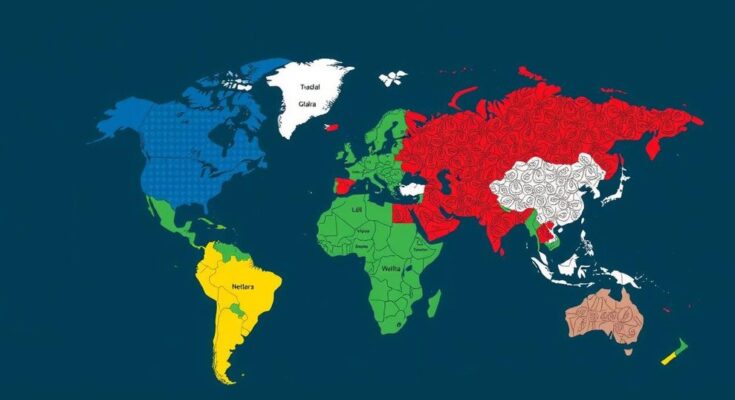Commonwealth leaders are convening in Samoa to discuss urgent issues such as climate change and reparations for Britain’s role in the transatlantic slave trade. These discussions highlight vulnerabilities of small island nations to rising sea levels and the ongoing call for reparations, particularly from CARICOM, amid differing perspectives on financial accountability for historical injustices.
The Commonwealth Heads of Government Meeting (CHOGM) is currently underway in Samoa, where leaders from 56 nations with historical ties to Britain will engage in discussions primarily focused on two pressing issues: the need for reparations regarding Britain’s involvement in the transatlantic slave trade and the urgent threat posed by climate change. The summit commenced on Monday and features the participation of notable figures, including King Charles III of the United Kingdom. Climate change is of paramount concern for many Commonwealth members, particularly for small island nations that are increasingly vulnerable to rising sea levels. United Nations Secretary-General António Guterres has highlighted that ocean temperatures in the Pacific Islands are increasing at a rate three times faster than the global average, putting the local population at a heightened risk. Australian Foreign Minister Penny Wong underscored the critical nature of climate change, asserting, “Climate change is an existential threat. It is the number one national security threat. It is the number one economic threat to the peoples of the Pacific and to many members of the Commonwealth.” In addition to climate discussions, reparations for transatlantic slavery remain a significant agenda item. While British Prime Minister Keir Starmer announced that the United Kingdom would not formally address this sensitive issue during the summit, he expressed willingness to engage with leaders who wish to discuss it. Nations, particularly those within the Caribbean Community (CARICOM) and the African Union, are increasingly vocal in their demands for reparations. Moreover, CARICOM has initiated a commission specifically aimed at pursuing reparations from colonial powers such as the United Kingdom, France, and Portugal. Advocates for reparations argue that the lasting impact of slavery has perpetuated stark racial inequalities today. Notable voices such as Kingsley Abbott of the University of London have emphasized that discussions surrounding reparations should always be encouraged. The historical context of transatlantic slavery cannot be overlooked, as it is estimated that from the 15th to the 19th century, over 12.5 million Africans were forcibly taken from their homes, many of whom endured the harrowing middle passage and were subjected to inhumane exploitation on plantations across the Americas.
The debate surrounding reparations for slavery is complex and deeply rooted in the historical injustices of the transatlantic slave trade. This tragic chapter in history saw millions of Africans kidnapped and transported under brutal conditions, leading to profound socioeconomic inequalities that persist to this day. Recent discussions have intensified, particularly within Commonwealth nations, as leaders confront the long-lasting impacts of colonialism and the imperative of addressing climate change, which disproportionately affects vulnerable populations. As small island nations face dire consequences from climate change, the intersection of environmental and historical issues has become increasingly relevant in political dialogues.
The CHOGM meeting in Samoa serves as a critical platform for Commonwealth nations to confront significant challenges such as climate change and the contentious issue of reparations for transatlantic slavery. As leaders convene to deliberate on these essential matters, the outcomes may shape the future of international relations and illustrate the commitment of former colonial powers to address historical grievances while navigating contemporary global threats.
Original Source: www.swissinfo.ch




